#i like the thought of frankenstein's fear of fire being incorporated into him in his fear of both rest and havdalah..
Text
Top Five Favorite Books
TAGGED BY: @hmmm-what-am-i-doing
The Hunchback of Notre Dame
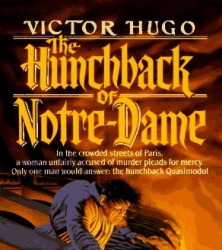
The other famous novel by Victor Hugo. Written in 1831, Notre-Dame de Paris, known in English as The Hunchback of Notre Dame, is a rich, meandering tale that addresses messy relationships, fate, and the future of architecture in 1482. The English title is a misnomer, since the protagonist of the story is Esmeralda, the original title being a metaphor on the cathedral who serves as the central location of the novel, and Esmeralda herself (though one could argue the cathedral is itself a character). Victor Hugo strongly protested against the English title, as it turns the focus from the cathedral onto the characters.
The hunchback is Quasimodo, the deaf, one-eyed, hunchbacked, monstrously ugly bell-ringer of Notre-Dame Cathedral in Paris. Abandoned outside the church at the age of four, he was taken in out of kindness by the Archdeacon of Josas, Claude Frollo, who raised him in the church and introduced him to the bells. When the hitherto chaste Frollo sees the romani girl Esmeralda dancing in the street one day, he finds himself stricken with lust, and doesn't know how to deal with it. So, sure as Love Makes You Evil, he grabs Quasimodo (for muscle) and tries to kidnap her. The attempt is foiled by Phoebus, Captain of the Archers. It is spectacularly not foiled by lovable slacker-poet Pierre Gringoire, who gets knocked out trying to save the girl.Later that night, however, Esmeralda temporarily marries the poet, to save his life from her friends at the Court of Miracles. That doesn't mean she's going to let her new "husband" touch her, mind you, or that she's going to give up her dreams of marrying Phoebus. Phoebus likes the look of her, himself, and although he's already engaged to his teenage cousin Fleur-de-Lys, he's not opposed to a bit on the side. Esmeralda's small kindness to Quasimodo when he is in the stocks for the kidnapping attempt (Frollo having let him take the fall) makes her an angel in Quasimodo's mind, and he is henceforth devoted to her. This eventually, and painfully, puts him in conflict with Frollo, whose combination of lust and loathing for Esmeralda makes him increasingly unstable. Amidst the drama and tragedy resulting from everybody's fatal obsessions, Hugo includes leisurely chapters on the architecture of Paris and the expected impact of the newly-developed printing press.
Frankenstein
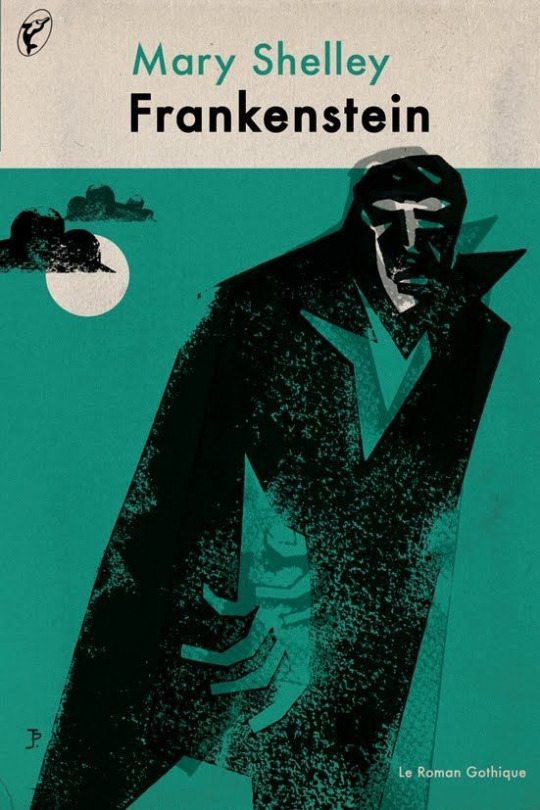
Frankenstein; or, The Modern Prometheus, usually abbreviated to Frankstein is a novel by Mary Shelley. It was originally published in 1818. It had a 1823 reprint without Shelley's involvement and a third edition in 1831, this time with significant edits from the author. Frankenstein is considered an Ur-Example of Science Fiction and inarguably has vast historical significance.
The novel tells of Dr. Victor Frankenstein who unlocks the secrets to Creating Life. He uses this knowledge to create an artificial man, larger and stronger than most mortals, by means which he chooses not to describe. While he is initially triumphant with his success, a few moments of observing the flailing and moaning patchwork being leaves Victor disgusted by and fearful of his creation. Realizing the ramifications of his success, he is horrified. He abandons the Creature and flees to his family's estate. In his absence, the Creature is forced to come to grips with suddenly finding itself alive and alone without explanation or guidance. He learns about humanity by watching a family cottage from afar, but is again driven off when he attempts to offer his friendship- one of many bad run-ins with humanity which leave the monster bitter and cynical. Eventually, the Creature comes to resent his creator, whom he views as his father, for abandoning the Creature to a life of torment, and decides to come home to seek vengeance against Frankenstein...
The subtitle, The Modern Prometheus, compares Victor Frankenstein to the Greek titan Prometheus, who brought the secret of fire from Mount Olympus to mortal men, reflecting on Frankenstein's spiritual would-be theft of the secret to creating life — but like Prometheus, Frankenstein also came to regret his transgression.note Many would say that Frankenstein was the ultimate warning of Science Is Bad, though similar stories were common throughout the industrial revolution and it is not even clear whether the act of creating the Monster was bad in itself, if the world wasn't ready for it, or Frankenstein was just a horrible and abusive parent.
One Hundred Years of Solitude
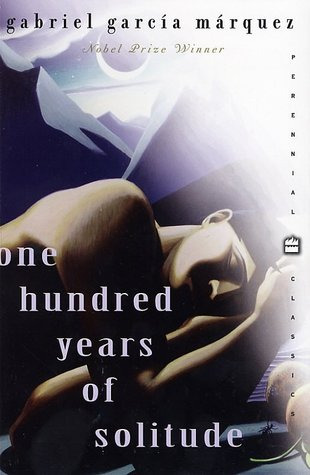
One Hundred Years of Solitude is a 1967 novel that won Gabriel García Márquez the Nobel Prize for Literature. It's become a staple of Spanish-speaking high school curricula everywhere. Arguably one of the most important pieces of literature written in the 20th century, or to put in context, almost as important as Don Quixote to Spanish speaking literature. Famous, among other things, for using every conceivable trope one could ever hope to fit in 28.8 oz of paper.
The book follows the story of the Buendía family and the town they create, Macondo, from its foundation to its end. Of course, it is told in a non-linear fashion with every generation having the same few names, as well as the same basic attributes (except for a pair of twins whose names are thought to have been accidentally switched at some point). Alongside the story of the Buendía family, there are an abundance of vignettes recounting both the everyday and the supernatural occurrences that shape the lives of the inhabitants of Macondo. The themes range widely, incorporating legendary figures (such as the Wandering Jew), historical events (Sir Francis Drake’s bombing of Rioacha, the Massacre of the Banana growers), and short stories about the love of two minor characters who never get to interfere with the main action. Believe it or not the story takes place in a time span of a hundred years.
Netflix has announced that it will be adapting the story into a television series.
The Arabian Nights
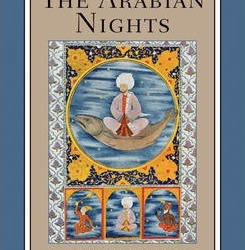
The Arabian Nights, correctly known as The Tales of One Thousand and One Nights (Farsi Hezār-o yek šab, Arabic Kitāb 'alf layla wa-layla), is a massive collection of Fairy Tales drawn from sources as far apart as the Middle East, North Africa, India, and, to an extent, even China and Greece. It has for centuries shaped the European view of the [relative to Europe] "(Near) East" or "Orient", even though only some of the stories are widely known. In fact, early Arabic-language versions only contain about 300 nights. The 701 others were added later; most of the additions were by Arab writers, but European translators added some other folktales they'd collected in their editions. Some of these additions were based on other Arabian sources, but others, including Aladdin and Ali Baba and the Forty Thieves, were stolen by Antoine Galland (the French translator) from Syrian Maronite writer Hanna Diyab, who recounted those tales to Galland and based them on various aspects of his own life. Diyab's autobiography was found in 1993 and greatly expanded our understanding of these stories.
The Framing Device for the story cycle is the tale of King Shahryar and Shahrazad. The King's first wife had cheated on him, so he had her executed. Then, feeling that no woman could be trusted, he hit upon a plan only a powerful and insane tyrant could pull off: He'd marry a woman, spend the night with her, and then, in the morning, send her off to the royal Wazir (chancellor) to be executed. No woman would ever betray him again! After a great many wives were executed in this manner (Richard Burton's translation says the King did this for three years, which would be about 1,100 wives), the Wazir was running out of marriage prospects to present to the King. Then the Wazir's daughter, Shahrazad, came to him with a plan. Since her plan involved marrying the King, the Wazir objected in the strongest manner possible, but nothing would deter the girl, and finally he brought her to the King.
Come the wedding night, once he started putting the moves on her, she feigned becoming upset, and pleaded to see her younger sister one last time. The King acquiesced, and allowed Shahrazad's sister Dunyazad to stay in the room with them until dawn. Even while they consummated the marriage. Awkward. After that and the three of them went to sleep, the sisters woke up at midnight. Just as planned, Dunyazad asked Shahrazad to tell her a story, but by the morning she was not finished, and ended the story on a Cliffhanger. The awoken King was so hooked on the story that he postponed the execution for one night, in order to hear the rest. But after Scheherazade ended that story, it was still the middle of the night, and she started up another story, again ending on a cliffhanger in the morning. The nightly routine continued. Some of the stories were simple, some complex and multi-layered; sometimes a character in one story would begin to tell a second story, and sometimes the story was never actually ended because Scheherazade had gone on two or three layers and never returned to wrap up. Or sometimes she claimed she didn't know the ending, but had another tale that was even more intriguing than the unfinished one. But all of the stories were so compelling that the King could never bear to order her execution without hearing the ending. So Shahrazad kept up the stories for three years — in the meantime bearing Shahryar three sons — and finally, after 1,001 nights, she said that she had told all of her tales and was ready to die. But the King had fallen in love with her, and had been calmed by her entrancing stories. He declared that no woman in the kingdom was as wise as Shahrazad, and he made her his queen for keeps this time, and they lived Happily Ever After.
Unlike many legends which deal primarily with the deeds of the nobility (who after all were the ones who could afford to have a bard as a permanent resident at their palaces), Arabian Nights has the fascinating twist that it covers people from myriads of occupations in a highly-complex society.
The Mysterious Flame of Queen Loana
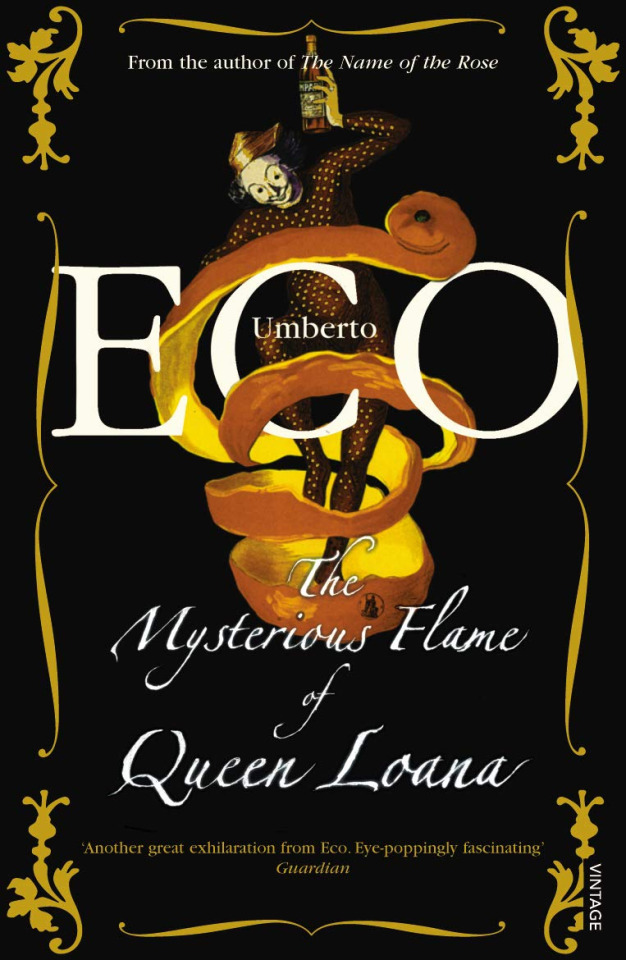
A novel by Umberto Eco.
Yambo Bodoni has a problem. After suffering a stroke, he lost his episodic memory. Now he can't remember his name, family, or any aspects of his life. Thanks to a lifetime of work as an antiquarian book dealer in Milan, however, he can recall anything he's ever read. In order to rediscover his lost past, Yambo heads to his childhood hometown of Solara. As he pores through old newspapers, comics, and magazines, Yambo - and the reader - get glimpses into the often tragic and bittersweet reality of a boy coming of age in Italy during World War II.
9 notes
·
View notes